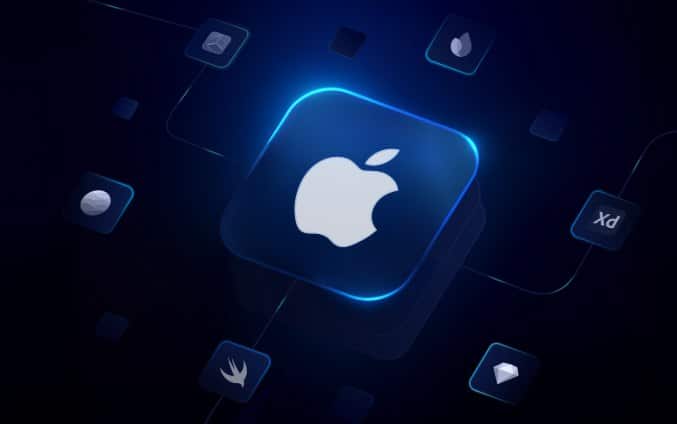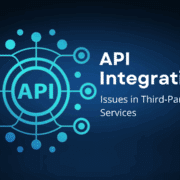Cloud Integration in Custom iOS App Development Services for Better Performance
In the rapidly evolving landscape of mobile applications, performance, and efficiency are the two key metrics that determine an app’s success. Especially for applications based on Apple’s iOS platform—seamless performance is indispensable.
However, the real challenge for businesses and app developers is how they can satisfy the high-performance demands with their applications.
For iOS application development, cloud integration can prove to be a game-changer!
Cloud integration in custom iOS app development services is an emerging trend, enabling developers to create high-performance applications that offer seamless user experiences. Whether you are creating your first custom iOS app or have been doing it for a long time, leveraging cloud integration can transform your apps.
As we proceed further in this blog, we will understand cloud integration in custom iOS app development better, outlining the benefits, best practices, and cloud technologies businesses and developers should consider.
Understanding Cloud Integration in Application Development
Cloud integration in custom iOS app development refers to the process of connecting an iOS mobile application to cloud-based services and resources to facilitate data sharing, scalability, and efficient resource utilization. This approach generally uses third-party cloud services, based on the specific needs of the app.
This integration enables seamless synchronization between different cloud platforms, databases, and applications, allowing businesses and custom iOS app development services to enhance the performance, user experience, and operational efficiency of the application across all types of devices.
Benefits of Cloud Integration in Custom iOS App Development
According to a cloud applications market report, the global market for cloud-based mobile app development is projected to reach a staggering $356 billion by the end of 2025. The reason behind this rise of cloud integration in application development is the impactful benefits it offers to both businesses and their applications.
Keeping that in mind, let’s have a look at some of the notable benefits that cloud integrations offer in custom iOS app development;
Enhanced Performance and Speed
By offloading intense processing tasks to the cloud, iOS apps can perform faster and more efficiently on user devices. This is particularly beneficial for apps that require real-time data processing, such as video streaming, gaming, and VR applications. Cloud integration ensures that complicated tasks are handled by powerful servers, leaving the device to manage simpler processes.
Scalability and Flexibility
Cloud integration in custom iOS app development services significantly increases the scalability and flexibility of the application. Cloud services allow iOS apps to handle varying loads without compromising performance. As user demand fluctuates, cloud infrastructure can automatically scale resources up or down, ensuring that the app performs consistently and remains responsive.
Faster Data Synchronization
For apps that require data synchronization across multiple devices, cloud integration becomes indispensable. Applications with cloud integration allow users to access their data from any device, with changes reflected in real time. This enhances the app’s performance and user experience by providing a consistent and seamless interaction within the application, regardless of the device being used.
Seamless Updates and Maintenance
Continuous updates and maintenance are crucial for enhancing the user experience and performance of iOS applications. With cloud integration in custom iOS app development services, deploying updates and bug fixes across all platforms and devices becomes easier. This ensures that users always have access to the latest version of the application without needing to manually update it.
Improved Data Security and Backup
Cloud integration in iOS application development also offers enhanced data security features, including encryption, multi-factor authentication, and frequent backups. In cloud-based custom iOS apps, data is stored in secure data centers, ensuring protection against cyber threats. Moreover, data backup becomes seamless, increasing the performance of the application.
Best Practices for Cloud Integration in Application Development
Cloud integration in custom iOS app development services is an extensive process and requires adequate expertise and experience to do it the right way. To fully harness the benefits of cloud-based services in your iOS application, businesses and app developers can leverage the following best practices:
Choose the Right Service Provider
The first and most important step towards cloud integration is selecting a cloud service provider that aligns with your app’s requirements. You must consider factors like performance, security, cost, and support when choosing a provider.
Implement Strong Security Measures
Security is paramount when it comes to integrating cloud services in application development. Ensure that data encryption, secure authentication, and regular security audits are in place to protect user data.
Optimize Data Management
Efficient data management is crucial for enhancing the performance of cloud-based iOS applications. Use data caching strategies to minimize latency and implement efficient database management practices to ensure quick data retrieval and storage.
Rigorous Testing and Debugging
No cloud-based custom iOS app development project is complete without robust testing and debugging. Undertake a comprehensive assessment of your application before deployment to identify and rectify any bugs, errors, or malfunctions.
Monitor, Maintain, and Update
A successful iOS application requires continuous monitoring and maintenance to ensure optimal performance and user experience. Regularly release updates, rectify bugs, and apply security patches to keep your app consistent.
Best Cloud Platforms for iOS Application Development
The rising adaptation of cloud integration in iOS mobile app development has also given rise to numerous cloud platforms from different cloud service providers. While all these platforms offer unique benefits and features, choosing the right one depends on your application’s integration needs.
Here are some of the popular cloud platforms that cater the best to custom iOS app development services:
Apple iCloud
The best cloud platform for custom iOS app development is undoubtedly Apple iCloud. This platform is best suited for applications that require seamless integration, data storage, and synchronization in the Apple ecosystem.
Google Cloud Platform (GCP)
Google Cloud Platform is known for its high-performance cloud computing, storage, and database solutions, enabling mobile apps to process large volumes of data quickly and efficiently. It also supports cross-platform compatibility.
Microsoft Azure
With robust tools like Microsoft App Service, Azure Functions, and Azure DevOps, this cloud platform offers extensive cloud services for mobile app development. It is most suitable for enterprise applications that require high security.
Amazon Web Services (AWS)
AWS is one of the most popular and widely used cloud platforms due to the wide range of tools it offers, such as EC2, S3, and Lambda. It is preferred by custom iOS app development services due to its reliability, scalability, and security.
IBM Cloud
A well-established provider of cloud services, IBM Cloud offers a wide range of cloud solutions for app development. It is majorly known for its managed Infrastructure-as-a-Service (IaaS) and cloud migration services.
Wrapping Up
Integrating cloud services in custom iOS app development services is a strategic move that can not just significantly improve app performance but also enhance scalability and user experience. With its numerous benefits, cloud integration becomes an inevitable tool for creating robust and efficient iOS apps.
By following the best practices and leveraging the power of the best cloud platforms, businesses can amplify the benefits of cloud integration in application development. The future of cloud technologies holds endless growth opportunities for businesses and embracing cloud integration today will help them create more robust iOS apps.




